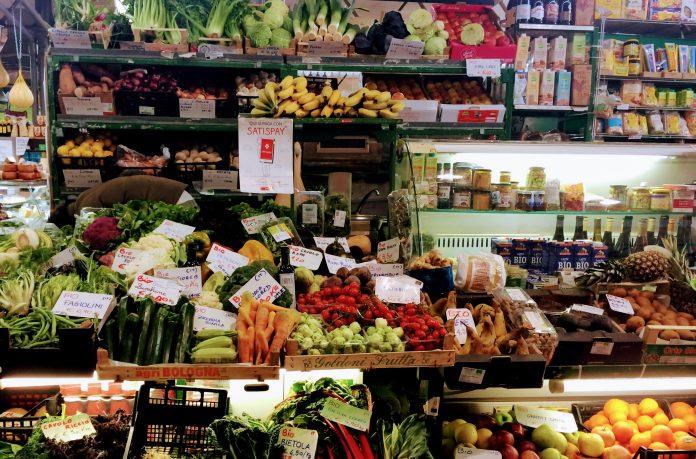May is both Food Allergy Awareness Month and Celiac Awareness Month. It is also the beginning of PCS season for many military families. Moving the family every few years is one of the more significant stressors for military spouses. When my younger kids were diagnosed with life threatening food allergies, just as I transitioned to the gluten-free lifestyle that celiac disease requires, I was overwhelmed by the new considerations surrounding PCS moves. When we had the opportunity to pursue a move to Italy, the questions multiplied: Would it be hard to manage food allergies and dietary restrictions in a different country? How would language barriers affect my children’s safety? Is it even worth traveling if we have to miss out on so many famous Italian foods?
One in thirteen American children suffer from food allergies, forty percent of which are allergic to more than one food. This does not include the 2 million Americans who have celiac disease (an autoimmune disorder that is triggered by eating foods containing gluten). I am sure my family is not the only one navigating these concerns during a PCS move. As we approach one year since our OCONUS PCS, I want to share a few things I have learned (or rather, am still learning) along the way.

Be Prepared
One of the biggest things that I have learned through our moving and traveling experiences is that you can NEVER pack too many snacks. We did not want to risk our children encountering an unsafe food in-flight, so we packed their meals and snacks for the entire transatlantic flight. We also carried a good supply of EpiPens on our flight, since emergency medical care would not be immediately available in the air. During other trips, I have learned the hard way that even the best laid plans do not always pan out, and we always need to be prepared with enough food on hand, in case a safe meal is not readily available. Every time we go out, and might be stopping at a café, I always carry safe sweet treats so that my kiddos won’t be left out. At first it felt a little strange to take food into an establishment, but we have never encountered any problems with this practice. When I get coffee or wine, they get juice. When their sister gets a pastry, they get their own pre-packaged baked good from the grocery store. Café culture is a big part of life where we live in Italy, and although they never get to order a pastry, my six and three year old still ask to go to a coffee shop any chance they get. More than the food, it’s the connection and experience that matters.
Use Allergy Cards
When safety is a concern, it is important to feel confident that you can communicate your needs across language barriers. When we decide to order food for our kids at a restaurant, we always bring an allergy card with professionally translated information about their unique allergies. We use custom made cards from Equal Eats. You can order a hard copy to keep in your wallet, or a digital version, which you will receive within 24 hours. If there isn’t time to print copies to send back to the kitchen, you can simply show the card on your phone. The peace of mind that we gain from knowing that the seriousness of the allergies is getting through, is more than worth the cost of the translated cards.
Do Your Research
Whether you are moving or simply vacationing to a foreign country, it is vitally important to make sure you know the basics about your allergies in the local language. As mentioned above, allergy cards are a great resource to be sure that you have the accurate translations for the problematic foods. Make sure that you know the labeling laws in the country that you visit. In most European countries, the 14 common allergens must be listed in bold on food packaging. If you are unsure about a new language, you can use a translation app to double check the ingredients while you are in the store. But it’s imperative that you do your research ahead of time, as sometimes words are not translated with 100% accuracy. For example, in English, we use the word “nuts” to refer to all kinds of tree nuts. But when translating the word “nut” to Italian, it usually becomes “nocce” which actually only refers to walnuts. So if you ask someone in Italy if a product has “nuts” (nocce), they might assure you it is safe….when it does in fact contain some other kind of nut.
One resource that I have found helpful are facebook groups specific to traveling with allergies. These can provide some idea of what you need to look out for in a certain city or country, or even recommendations for a safe place to eat.
Find out ahead of time what the emergency phone number is for an ambulance where you will be visiting, and save it in your phone. Many countries do not have one universal emergency number, but instead they have one specific for medical emergencies. You may also want to find out where the nearest hospital is located.
Communicate Boundaries
Only you can decide what boundaries you feel are safest for you or your children. This will vary for every individual or family. After some research, I found that it would be very difficult to find gelato shops that would be safe for my kids, because of their allergy to tree nuts. For now, gelato shops are simply off limits. Perhaps there are some safe spots out there,, but with young kids, I find that it is easier to just say no for now. This may change in the future, but with this boundary in place, we can spend a day out and about with them asking and us worrying about finding that needle in a haystack. It just isn’t worth the stress at this point in our journey. Equally important to deciding your boundaries, is communicating them with any travel companions. However well-intentioned, it isn’t helpful for others to make promises to your kids, or to spend precious travel time trying to find something that you may ultimately rule out. Let others in your travel party know if something will not be a part of your itinerary. Communicating boundaries is also important when it comes to social functions. When we are invited to something, I always bring safe food for my kids so that they won’t feel left out, and I make sure the host knows not to offer them anything without my permission. When my youngest was still a toddler, I sometimes opted for him to stay home with a sitter or one of us, so that the rest of the family could focus on enjoying time with people, rather than constantly worrying about what he might get his hands on. The toddler years are so very hard and scary, since they don’t yet understand their food allergy. Remember that this stage won’t last forever. As you protect and advocate for them during this time, you are setting them up for successfully advocating for themselves in the future.
As someone living with or raising kids with food allergies, you will face some level of risk any time you leave your house. Only you know what level of risk you can tolerate. It may feel like others think you are crazy for being so careful, or for not being careful enough. Listen to medical advice, trust your gut, and take it one day at a time.
Adjust Your Expectations
When my husband was stationed overseas the first time, our family didn’t have any dietary restrictions. We traveled often, and one of my favorite ways to experience different countries was through the food. I loved to try to get the most authentic version of a regional specialty at some hole in the wall place, or to enjoy street food like the locals. Now that we are dealing with our kids’ nut and egg allergies plus my own celiac diagnosis, making travel about food is much harder – and often disappointing. It feels discouraging for my kids to not be able to experience what I always considered such an important part of traveling, and I do grieve what we have lost. But I remind myself that travel is still worth it – even if you eat the same boring food the whole time. There is still so much to see and learn and experience when visiting different parts of the world. Now we spend the fun money on special experiences, often of their choice, instead stopping for gelato every chance we get.. If I don’t make a trip all about food, the kids won’t either, and we can all continue to make great memories.
When I feel like food allergies are an extra burden to living overseas, I remind myself that we would still be facing the same burden in the U.S. A little research goes a long way, and there is still so much good food to enjoy, especially when prepared in our own kitchen. I wouldn’t wish food allergies on anyone, but it is possible to continue to live a full, exciting life, wherever the military sends you. Sitting around the table is about the connections you make, not what food you are eating. Missing out on certain foods does not have to mean missing out on experiences.











